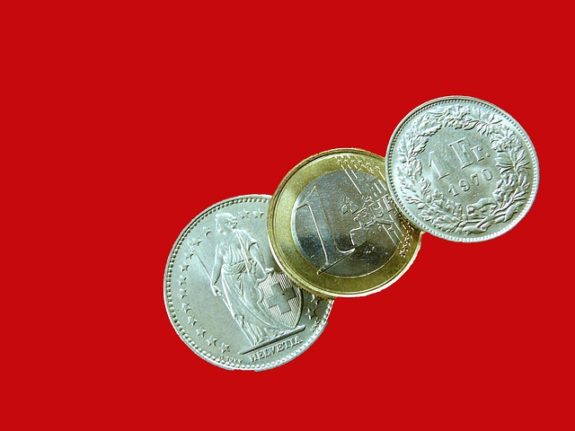In Switzerland, the amount of money one needs to make to be considered rich is different for every location.
The Institute for Swiss Economic Policy’s “Swiss Inequality Database” has calculated this number for each Swiss canton.
What exactly does it mean to be rich, and just how much money do you have to earn to be considered among Switzerland’s wealthiest breadwinners? While the desire for wealth and abundance is – to a degree – universal, its definition varies from place to place. This is particularly the case in a country as well off as Switzerland. Yet, there is clear data that shows when an individual is considered to be among the top earners for every canton.
Swiss national average
Households with an annual income of over CHF 97.591 (before taxes) belong to the wealthiest 20 percent in the country, however, it takes an impressive net salary of more than CHF 1.2 million to be among the country’s richest 0.1 percent. In contrast, after taxes, the latter will be left with around CHF 762,866 in their pockets.
French-speaking Switzerland
As with most things in Switzerland, just what income (before tax) makes one rich can vary significantly from canton to canton.
If you’re hoping to be among Romandy’s top earners, you’ll have the most challenging time accumulating wealth in Geneva where a staggering CHF 2.1 million is required to be considered among the canton’s 0.1 per cent uber rich. If you’re shooting for less, say the canton’s top 20 percent, you’ll only need to be earning a “modest” CHF 102,873 and to position yourself somewhere in the middle, at 5 percent, your salary would have to hit CHF 213,761.
Similarly, in Vaud, an income of around CHF 1,2 million will propel you among the 0.1 percent super rich, while a lesser CHF 192,842 and CHF 101,170, will mean you’re in canton’s top 5 and 20 percent earners.
Becoming rich is slightly more attainable in neighbouring Fribourg, and Neuchâtel where incomes of CHF 95,526, and CHF 86,805, respectively, place you within the top 20 percent of earners, and incomes of CHF 158,006 and 148,677 in the top 5 percent. In order to be considered among the cantons’ 0.1 percent, you’ll need an income of CHF 745,507 in Fribourg and CHF 930,015 in Neuchâtel.
Deutschschweiz
Leading the chart in German-speaking Switzerland is Zug where an income (before tax) of CHF 3,7 million will put you in the 0.1 percent of earners. In comparison, Zurich’s super rich average CHF 1,4 million per year. The gap is equally wide when it comes to the top 5 and 20 percent of the cantons’ wealthiest, with Zug’s averages standing at CHF 310,584 and CHF 133,048, while Zurich averages at CHF 205,822 and CHF 109,585.
In Basel-Country and Basel City, you will need to bring home CHF 106,284 and CHF 98,784 to be among the top 20 percent, while the top 0.1 percent make around CHF 1.1 million and 1.8 million. The two Basels highest 5 percent earners bag around CHF 185,288 (Country) and CHF 194,727 (City).
Things look a little brighter in Bern and Aargau with the former’s 0.1 percent income standing at a lesser CHF 730,312. Bern’s chief 5 percent earn CHF 144,412 and its 20 per cent average at CHF 89,150.
The situation is similar in Aargau with its richest earners bringing in some CHF 730,312. The top 20 percent of Aargauers have a salary of around CHF 707,342, with the 5 percent bringing home around CHF 165,682.



 Please whitelist us to continue reading.
Please whitelist us to continue reading.
Would it really be so hard to occasionally include Ticino/Italian speaking Switzerland in your reporting? As a subscriber it is quite annoying.